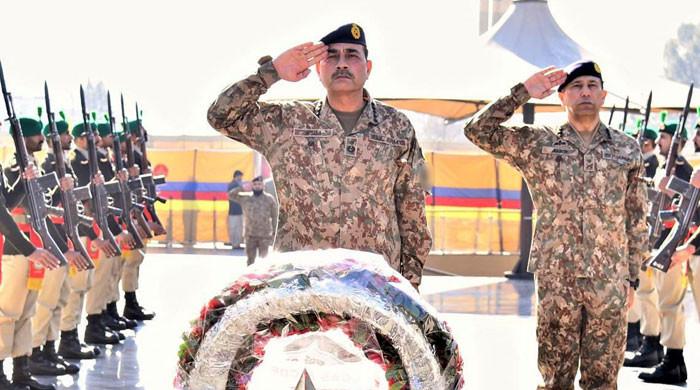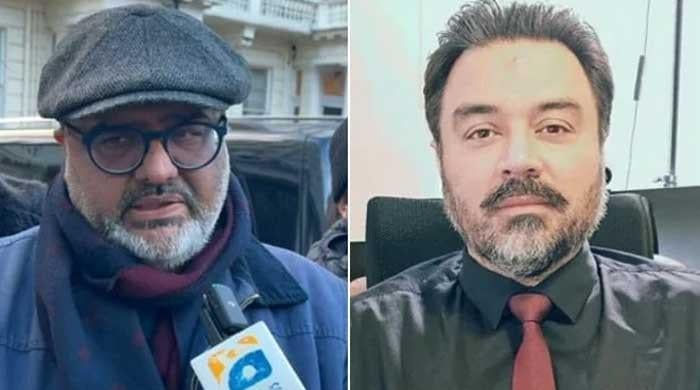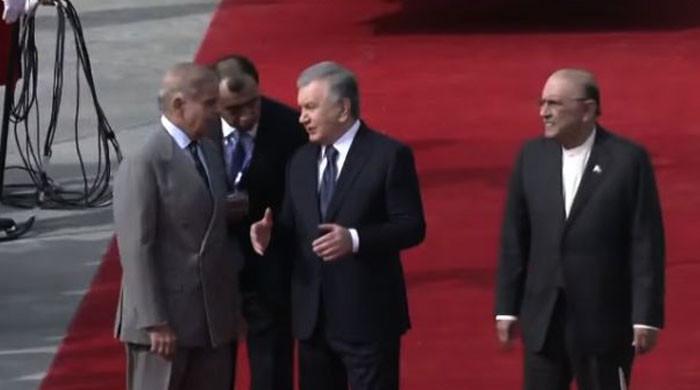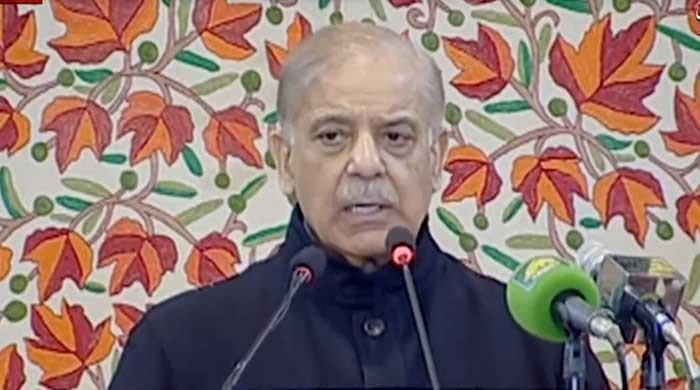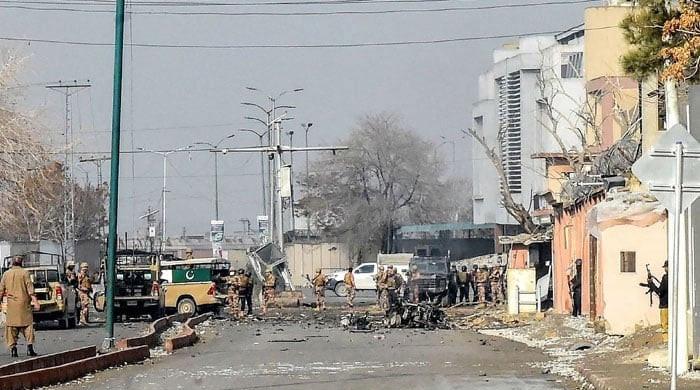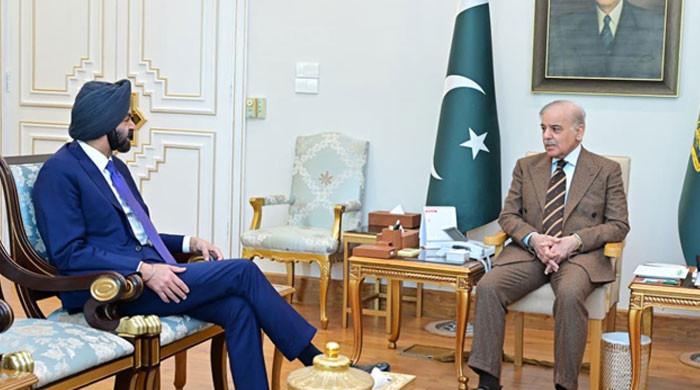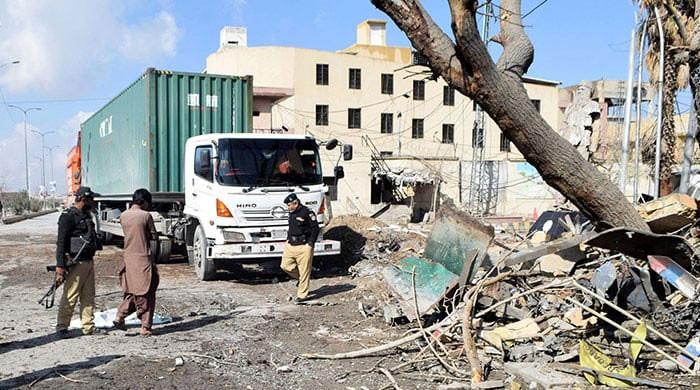HRW claims Pakistani police behind hundreds of extra judicial killings each year
KARACHI: The Human Rights Watch released a report highlighting the possibility that Police in Pakistan may be responsible for hundreds of extra judicial killings every year.
In its...
September 26, 2016
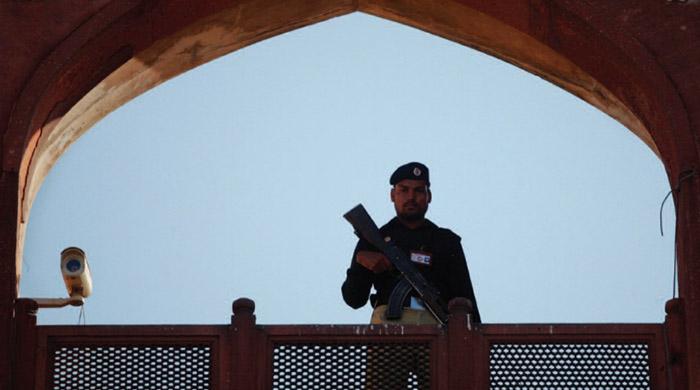
KARACHI: The Human Rights Watch (HRW) released a report highlighting the possibility that Police in Pakistan may be responsible for hundreds of extra judicial killings every year.
In its 102-page report titled “This Crooked System” the HRW citing public surveys and reports from government accountability and redress institutions stated that ‘the police are one of the most widely feared, complained against, and least trusted government institutions in Pakistan.”
The report points out the politicization of district level police chiefs who are “under the control of powerful politicians, wealth landowners, and other influential members of society.”
Citing interviews with police officials the HRW report states that officers “openly admitted to the practice of faked ‘encounter killings’, in which police stage an armed exchange to kill an individual already in custody.”
The report claims such ‘encounters’ take place because of pressure from higher command or powerful individuals or due because the police is unable to gather enough evidence to ensure convictions.
Thana Culture
The corruption of Pakistan’s law enforcement is known locally as the Thana Culture, which is the umbrella term used in Pakistan to describe the corruption and abuse that takes place at the hands of those responsible to ‘protect and serve’.
Police officials according to the HRW report cite organizational shortcomings, inadequate training and resources, lack of funds, poor working conditions and lack or coordination with other agencies as obstacles to transparency and accountability within the police force.
Over 2000 ‘encounters’ in one year
An encounter is when the police “unlawfully kill criminal suspects by and justify the killing an act of self defense or as a means of preventing the suspect from fleeing, according to the report.
Citing the Human Rights Commission of Pakistan the HRW report states that in 2015 alone, over 2,000 people were killed in armed encounters with the police, most in the province of Punjab.
The HRW fears that, many of not most of the ‘encounter killings’ were faked and did not occur in situations in which lives were at risk.
The Justification
According to the HRW report, one officer claimed that an encounter killing is a way of ensuring that a known criminal does not escape justice, due to lack of evidence of absence of witnesses willing to testify.
The report also cites unnamed senior police officers who openly admitted that “junior officers do stage encounters and kill suspects,” though they were less willing to provide information about the role of senior officials, the report adds.
Inability to act impartially
Citing multiple cases where police investigations have been partial, where the police have been involved in torturing and pressurizing complainants to take back complaints the HRW report highlights how the police is unable to act impartially due to political pressures.
One such case highlighted in the report is that of Sulaiman Lashari’s murder where the 18-year-old was gunned down in his own home after a quarrel over a car race. The father claims government interference in the investigation to change the investigation officer.
Ghulam Mustafa Lashari, the slain teen’s father told HRW that the perpetrator was the son of a high-ranking police official. While the report does not name the official it identifies the details of the murder where the police officials son along with his father’s armed policemen entered the Lashari residence shot Sulaiman and left.
The slain teen’s father told HRW that he has been pressured by the senior police official not to pursue the case. Adding that “forensic evidence proved that the rifles used to shoot my son were government-issued police weapons.”
Another case which gained international attention is the rape of an 8-grade student who was gang raped in 2007 and managed to escape the custody of her abductors who were under the protection of local landowners. The report highlights how the police initially refused to register a criminal case for rape.
After the family refused to back down, the police registered fake cases against the girl's family members who were arrested on murder charges. Later, the rape victims brother was murdered.
The victim told HRW, "instead of helping us, the police harassed us. False cases were registered against my brother in Hyderabad and they arrested him and kept him in jail for two months. We eventually managed to get him released on bail, but then they began to harass my other brothers. In 2009, the police registered a false FIR against my father and three brothers for the murder of my sister-in-law, even though she is still alive. For nine months, my brothers were kept in police custody for the murder of a person who was still alive. Finally, my sister-in-law appeared in court to prove that she was alive. That fake murder case against my family is still pending.
The HRW report quotes the victim stating that the police is harassing her and her family at the behest of feudal landowners who support the rapists.
HRW Recommendations
While the picture painted is bleak and disheartening, the HRW report highlights the following steps that if taken may be able to turn things around.
- Promptly investigate, and appropriately discipline or prosecute, police officials responsible for human rights violations and delays in recording criminal complaints and initiating investigations for gender-based crimes.
- Discipline or prosecute, as appropriate, superior officers who knew or should have known about acts of torture and killings, and failed to prevent and punish them.
- Issue mandatory directives to police that a First Information Report (FIR) should be registered in all cases where a complainant provides information that indicates the occurrence of any criminal offense.
- Ensure that the authorized police officer may refuse registration of an FIR only by stating reasons for doing so in writing, signing it, and providing a copy of the same to the complainant.
- Explicitly define acceptable interrogation techniques in police rules and manuals, and prohibit police from using illegal detention, torture, or other coercive measures to obtain evidence.
- Protect local police departments and their subordinate officials from political and other improper interference and harassment.





